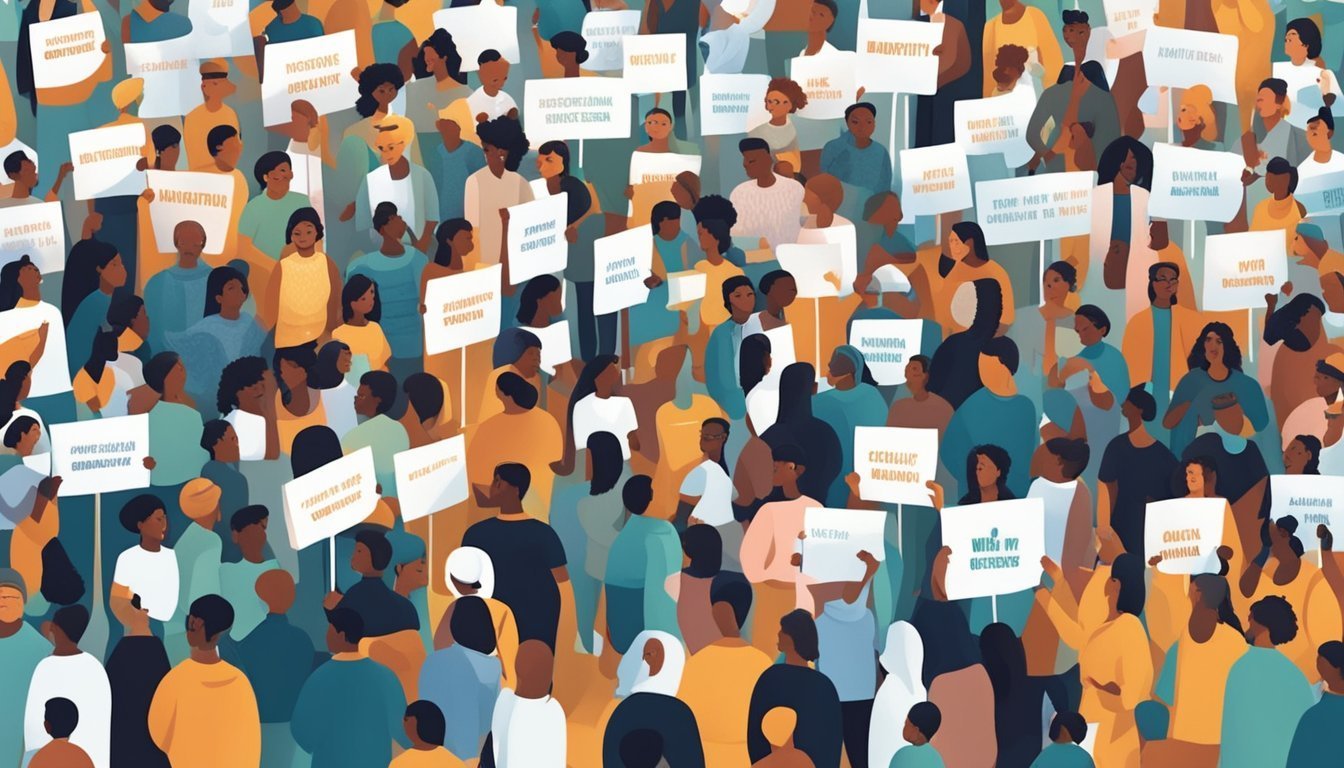DEI Overview
The conversation surrounding diversity, equity, and inclusion (DEI) has become increasingly relevant in contemporary political discussions, especially in light of former President Donald Trump’s recent actions.
This article examines these developments, their broader implications for societal equality, and the political resistance they evoke.
As the November elections approached, voters were preoccupied with various critical issues, such as the economy, immigration, and reproductive rights.
In this context, Trump took decisive steps to undermine federal efforts aimed at fostering inclusive workplaces that mirror America’s diverse identity.
His executive orders instruct federal agencies to develop methods that diminish DEI initiatives in the private sector, a move many interpret as a discouragement of businesses from actively confronting discrimination.
The Response Against DEI
Resistance to DEI initiatives intensified following a significant U.S. Supreme Court ruling in 2023, which invalidated race-conscious admission policies in higher education.
This verdict galvanized conservative groups, leading to a surge of lawsuits aimed at dismantling established DEI practices across multiple sectors.
Opponents often argue that DEI policies are, in themselves, discriminatory, particularly against historically dominant groups like white Americans.
This narrative has allowed some conservatives to weaponize DEI, falsely associating it with various business setbacks and crises.
The term “woke” has gained traction in this cultural battle, with states such as Florida pushing legislation to limit mandatory diversity training.
Influential figures from various industries have increasingly equated DEI initiatives with racism, further complicating the discussion.
Research Supporting DEI
Evidence from a 2022 McKinsey & Company study points to a clear link between diversity and enhanced organizational performance.
Their research showed that companies prioritizing inclusion were better prepared to handle challenges, attract top talent, and meet the diverse needs of consumers.
The data underscored that diverse leadership often leads to increased profitability and lower employee turnover, illustrating the strategic significance of DEI initiatives.
Additionally, a 2020 analysis of 1,000 U.S. firms revealed that those with higher gender and ethnic diversity were more likely to outperform their peers.
Specifically, enhanced gender diversity increased the likelihood of profitability by 25%, while higher ethnic diversity correlated with a 36% profit boost.
Ken Frazier, a prominent former executive in the pharmaceutical sector, has emphasized that DEI creates an environment where talent can flourish, particularly in contexts that may not provide equitable opportunities.
Surveys reveal that many Americans acknowledge the advantages associated with being white when it comes to achieving success.
In public discourse, identities such as Hispanic or Asian are often perceived as presenting more obstacles than advantages.
As Trump rallies conservatives against DEI, some major corporations, including Meta and Amazon, have begun to scale back their diversity initiatives.
This retreat underscores the substantial challenges companies face in maintaining effective DEI efforts amidst political and societal resistance.
The backlash against DEI is not unique to the United States; it resonates within international political debates, particularly in Europe, where leaders have resisted gender studies-related curricula.
Many European discussions about diversity lean toward a color-blind perspective, which may restrict advancements in creating inclusive workspaces.
A recent survey indicated that only a small fraction of companies in Europe actively pursue diverse and inclusive workplace policies.
In conclusion, the struggle for diversity, equity, and inclusion remains fraught with contention, impacting both the United States and global discussions on equality and representation.
The ongoing political opposition to DEI has the potential to exacerbate existing societal disparities, prompting a critical reassessment of how we approach these essential initiatives.
Source: The guardian


